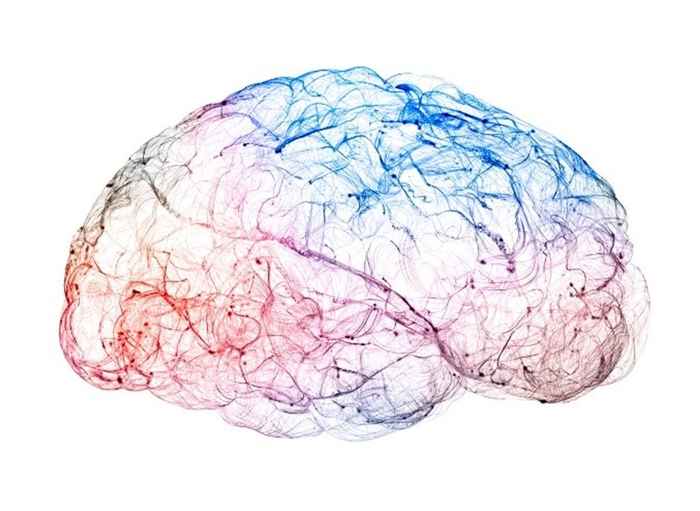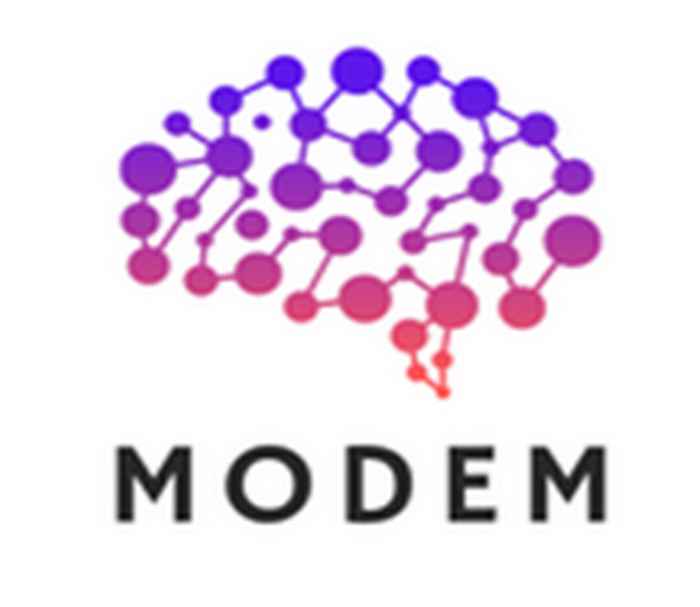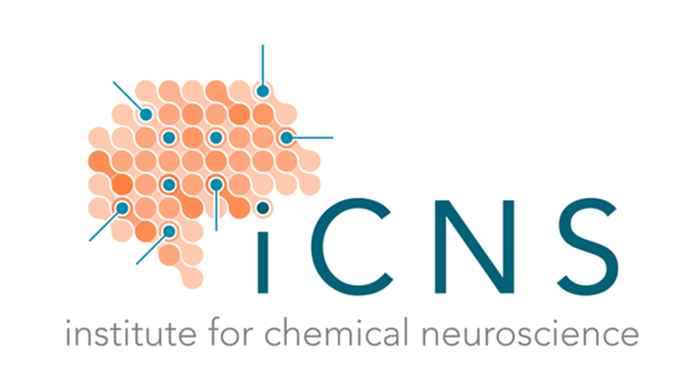New Consortia
-
Collaborating at the forefront of single cell developmental biology
author: dr. Thijs van Boxtel
The DSCCB group has strengthened its focus on developmental biology with the recruitment of a new UD, Dr. Thijs van Boxtel. This direction is now supported by a recently awarded and highly collaborative NWO-XL grant that combines classical developmental biology with the latest single cell sequencing techniques in a state-of-of the-art in vitro model for development termed “gastruloids”. Our interdisciplinary team consists of three additional partners located at the Netherlands Cancer Institute, Radboud University and the Hubrecht Institute. Together, we will address a major question in developmental biology: how a heterogenous clump of stem cells responds to signaling cues to faithfully give rise to an organized structure with a head-tail axis during early development. The project started at the beginning of 2023 and will use single cell RNA- and epigenome sequencing to catalog heterogeneity in stem cell populations. In parallel, intracellular transcriptional heterogeneity will be determined. Within the DSCCB group, we will push the boundaries of single cell imaging in 3D space and time to understand cell-cell communication. Finally, all data will be combined and integrated to feed into a computational “Agent Based Model” to predict behavior in the system. As such, our consortium is truly at the forefront developmental biology and many of the concepts, techniques and models used within the project are already being integrated in teaching within BSc and MSc courses

-
CropXR
author: dr. Petra Bleeker
CropXR: A new generation of breeding tools for extra-resilient crops
Three years ago “PlantXR”, a large national consortium, was formed on initiative of four Dutch universities; Utrecht, Wageningen, Delft and the UvA together with a number of leading Dutch plant breeding companies. The consortium, led by Prof. Guido van den Ackerveken (UU) submitted an ambitious program to the NWO-LTP call (50 M€, 10 years). The consortium was subsequently invited to develop this initiative further under the National Growth fund, which was awarded in 2022. The Dutch government invests 42 M€ in CropXR, a virtual institute around the PlantXR scientific core. CropXR will additionally be active in promoting the application of scientific knowledge, investigate societal impact, set up a shared national data-infrastructure, and develop training and teaching modules for future professionals. The Amsterdam Green Campus (AGC) plays a pivoting role in organization of the latter.
With a growing world population, increased production of healthy and safe food is vital. We, however, face pressing challenges for crop cultivation. Climate change leading to more extreme environmental conditions has enormous impact on agriculture and horticulture. Concurrently, farmers are increasingly restricted in the use of chemical disease-control and additives like fertilizers. Plant/CropXR, expected to start in 2023 involves SILS members Petra Bleeker, Rob Schuurink, Huub Hoefsloot and the AGC. The program aims to enable a smart crop-breeding approach to pave the way towards extra-resilient crops, plants genetically robust to withstand changing environmental conditions. Traditionally crops have been bred for maximum yield, whereas plant resilience received relatively little attention. Resilience is a highly complex trait that involves various processes and multiple genes that interact, alter over time, and are affected by the environment. By integrating modern plant biology with functional modelling, machine learning and artificial intelligence, we will learn to understand and predict how plants deal with (a)biotic stress and stress combinations by adjusting the complex interplay of the underlying genetic factors.

-
E-BRAINS-nl
author: prof. Cyriel Pennartz
The Cognitive and Systems Neuroscience (CSN) group plays an important role in the formation of the Dutch component of EBRAINS, a consortium of European institutes and universities, originating from the FET Flagship Human Brain Project. EBRAINS builds a sustainable European Research Infrastructure for digital brain research. It follows a hub-and-node organization, where a Dutch node is being established with various institutions in the Netherlands (i.e. most Dutch universities). Across 2017-2022, the CSN group led the Dutch EBRAINS community: e.g., establishing a consortium of partners with whom we aim to create a Large Scale National Infrastructure (LSRI) on the National Roadmap as a key partner in EBRAINS.

The particular roles of SILS-CSN in EBRAINS are defined by (i) large-scale dynamic models of brain function; (ii) biological neural network models of perception and multisensory integration, and (iii) data curation and advanced data analysis. A call for the nearest LSRI round is scheduled for Sept. 2024 and we will apply to that call. Additionally, the CSN group is active in EBRAINS-PREP, a preparatory project establishing a sustainable footing of EBRAINS, in collaboration with the EBRAINS central hub (Brussels). The CSN group delivered key assistance in several aspects of EBRAINS’ development, such as a large input to (i) an ESFRI roadmap application leading to endorsement of EBRAINS on the European Roadmap for Research Infrastructures, (ii) a white paper on neurotechnology spearheaded by EBRAINS’ central hub, and (iii) a Horizon Europe call involving personalized brain models for disease management (‘virtual twins’). The development of EBRAINS and the Dutch node are ongoing with several community-building efforts as we speak. The CSN group shares the vision that large-scale cooperation will be an important factor in advancing brain sciences across the globe. The formation of EBRAINS, and nationally, EBRAINS-NL, aims to provide researchers with key tools to understand how the brain works, and how to manage brain disease.

-
Epi-Guide-Edit
author: prof. Pernette Verschure
Successful implementation and impact of innovative research
The interdisciplinary EU H2020 EpiPredict MSCA training network, coordinated by Prof. Verschure, has made significant progress in the field of epigenetic regulation for hormonal breast cancer treatment and response. Multi-step epigenetic reprogramming and epigenetic heterogeneity were identified as main components of cancer progression and development of resistance to therapy and of importance for patient stratification and effective treatment strategies. This research has set the stage for an epigenetic modulation approach to predict treatment loss and define co-treatment solutions. The impact of this research is evidenced by the implementation of its findings in the establishment of a new consortium project, Epi-Guide-Edit coordinated by prof. Verschure (funded by NWO KIC Key Technologies call), starting early 2023.

A major goal of the Epi-Guide-Edit team is to develop sustained epigenetic reprogramming by epigenetic editing, as a non-invasive approach to guide cell behaviour, contributing to major societal challenges such as therapy of (ageing) diseases and the world food problem. The team will distill a prediction model based on project generated single-cell epigenetic CRISPR/dCas screening and dedicated data processing combined with an integrative epigenome analysis of existing -omics data. Epi-Guide-Edit brings together a diverse group of academic, industrial and societal partners, including institutions such as UvA, AUMC, UMCG, ErasmusMC, NKI, WUR, industrial co-funding partners Unilever, Bristol Myers Squibb, plant breeding, technical and societal partners Rathenau Institute and Science Matters. The inclusion of academic, industrial and societal partners highlights the impact and potential practical application of the research conducted and illustrates the responsible innovation of launching epigenetic editing as key technology in health, biomedicine and agriculture.
-
EpiSeedLink
author: dr. Maike Stam
The EU Marie Skłdowska-Curie Doctoral Network called EpiSeedLink, which includes Maike Stam from the UvA, received funding.
EpiSeedLink will focus on Epigenetic mechanisms of seed priming to design strategies for crop improvement and is coordinated by Vicente Rubio (CSIC) in Madrid. Having experience as previous coordinator of the MC ITN EpiTRAITS, Maike Stam played a crucial role in the writing and the joined recruitment process. In total 11 PhD students have been appointed in nine research labs and two companies, in France (2), Germany (2), Ireland (2), the Netherlands (1), Spain (3) and Switserland (1). The PhD students started March 1, 2023.
EpiSeedLink’s mission is to train the PhD students in epigenetic regulation of seed priming mechanisms, and to translate scientific knowledge and skills into innovation and applications. Crop performance is threatened by climate change and hence EpiSeedLink will explore epigenetic regulation of seed priming mechanisms to improve crop performance under threats caused by climate change (drought, heat, high light). EpiSeedLink will train a new generation of scientists with a broad range of scientific and transferable skills to tackle main agricultural challenges, and to enhance their career perspectives in both academic and non-academic environments. Through its training programme, the network will provide international, multidisciplinary, and inter-sectorial training in experimental and computational biology, and generate an in depth understanding of the molecular mechanisms underlying ‘epigenome priming’ at the genetic and molecular level. The programme combines the unique know-how of academic experts and seed companies in seed biology, crop breeding, epigenetics, biochemistry and biostimulants to synergise research and knowledge transfer between a model plant (Arabidopsis) and the premium crop oilseed rape. EpiSeedLink will hence not only contribute to excellent research, but also address urgent societal and agricultural needs, contributing to the development of a sustainable bioeconomy and meeting climate targets.
-
Institute for Chemical Neuroscience (iCNS)
author; Prof. Paul J. Lucassen
ICNS is a gravitation project funded by the Dutch National Research Council NWO. This 10-year research program focuses on unravelling molecular mechanisms of brain diseases. For e.g. some neurological brain diseases, like Alzheimer's disease or multiple sclerosis, it is fairly well known what changes where in the brain. However, for psychiatric syndromes such as depression, schizophrenia or an anxiety disorder, this is still largely unknown.
Collaborating partners
The University of Amsterdam, the Netherlands Institute for Neuroscience, the Universities of Leiden, Utrecht and Groningen, Radboud University in Nijmegen and Erasmus University in Rotterdam are working together in this project. The Ministry of Education, Culture and Science and the Netherlands Organisation for Scientific Research (NWO) have awarded a Gravitation grant.Urgency and purpose of research
We still know very little about the underlying biological mechanisms of psychiatric syndromes. The molecular and cellular changes that cause psychiatric symptoms, such as low mood, psychosis or anxiety, are therefore still unknown. Many of these psychiatric symptoms also occur in neurological syndromes, such as depression in Alzheimer's disease and multiple sclerosis. As a result, they are not very specific to a single condition.Treatments such as psychotherapy and/or medication can help, but these treatments are not effective for everyone. It often takes a long time to find the right treatment, and medication can come with many side effects. In recent decades, hardly any new medicines have come onto the market.
Psychiatric symptoms are not caused by structural changes that you can see with a normal microscope, as in Alzheimer's disease. We focus on molecular changes at the very smallest level of the connection points within neuronal networks. It is not known what changed there. We will map out at the cellular and molecular level how this structure differs from person to person and whether this can be linked to their psychiatric symptoms.

Establishment of a national institute: unique information for brain donors
In the Institute for Chemical Neurosciences (iCNS), research is being carried out on the human brain tissue of the Netherlands Brain Bank of neuropsychiatric patients, collected by the Netherlands Brain Bank in the context of the earlier NBB-PSY cohort and the donor data from the Netherlands Neurogenetics Database.In iCNS, the most modern molecular analysis techniques are applied to the human brain tissue and then combined with artificial intelligence of all patient data. This makes it possible, for the first time, to link specific molecular changes in certain brain regions to specific psychiatric symptoms. Subsequently, the molecular changes found will be characterized in great detail in the brain tissue, as well as at the functional level in modern cell and model systems (including stem cells and brain organoids) with excellent chemical methods.
In this national iCNS consortium, neurobiologists, chemists, psychiatrists, data scientists and patient representatives work closely together to force breakthroughs in research into psychiatric symptoms. In addition, we aim to train a new generation of young scientists who will continue these modern, multidisciplinary approaches. We will combine the unique clinical and neuropathological information from the donors of the Netherlands Brain Bank with advanced techniques to analyze the tissue, in order to gain a better understanding of the interindividual disease processes. This is unique, because almost no brain bank in the world has this rich information available from brain donors.
New necessary insights
The research is expected to lead to new insights into the mechanisms of brain diseases. The aim is to develop a "brain atlas" of psychiatric symptoms that will hopefully contribute to a better understanding of both the onset and the individual course of the disease in different neuropsychiatric disorders. This fundamental understanding is necessary to develop new approaches to diagnosis and prognosis, and ultimately to better treatment of psychiatric syndromes.Contact;
Paul Lucassen; p.j.lucassen@uva.nlInge Huitinga: i.huitinga@nin.knaw.nl
-
MetaHealth
author: prof. Stanley Brul
METAHEALTH; an NWA-ORC consortium that aims at the prevention of overweight and tooth decay.
A large consortium led by the faculty of Dentistry ACTA, with the Faculty of Science of the UvA, groups of the Amsterdam University Medical Centers, the UvA’s Faculty of Humanities and many others has received NWA-ORC funds of 10 million euros for the project METAHEALTH: Health in a microbial, sociocultural and care context in the first 1000 days of life. Four SILS researchers contribute as key partners in METAHEALTH and the project builds on the PMH-RPA (see elsewhere).

Anca Danila, ‘Infant Obesity’, 2008-2010. With permission by the artist to use the picture for this proposal. The human microbiome as point of focus
The first 1000 days of life are critical in setting up the microbiota, the community of microorganisms present in a given host niche of the human body. Together these microbiota contain the microbiome, all microbial genomes of the microbiota. For example, in the gut there are about 300-1000 species that contribute with their microbiome to the daily processing of food and proper functioning of the hosts’ immune system. The gut microbiome and oral microbiome are closely connected.

Picture: GuMI device that allows studying bacteria in combination with human tissue. This will be used in the project to investigate host-microbiome interactions. Image credit: Dr. Jianbo Zhang. Host-microbiome interactions and their effect on health
At SILS we focus on the interactions occurring between the microbiome and its host, human tissue and cells. We will investigate the mechanisms underlying the host-microbiome-immune interactions and identify potential interventions that can help strengthen the immune system via the microbiome, to increase oral and gut health. To complement the experimental part of the project, SILS will contribute with data analysis and modelling expertise to integrate data in the consortium and look into how the host-microbiome interaction evolves over time within and across cohorts of patients, and how interventions can be applied.
-
MODEM: Mechanisms Of Dementia
Author; Prof. Dr. Paul Lucassen
Dementia is a complex neurodegenerative disease, characterized by cognitive decline that progressively worsens over decades and affects millions worldwide. Dementia encompasses several subtypes, such as Alzheimer’s disease (AD), Frontotemporal dementia (FTD), Lewy body dementia (LBD) and vascular dementia (VD), a.o..

In MODEM, a consortium of Dutch dementia researchers, funded by ZonMW and Alzheimer Nederland as part of the National Memorabel program, we work together with several Dutch research groups to investigate different types of dementia, focusing on the underlying processes and early mechanisms of disease. We thereby hope to get a better understanding of how the disease develops and how it progresses, but also how we can possibly prevent it and protect our brains by e.g. promoting resilience to dementia. Ultimately, we hope to use this knowledge fort he development of new medication and/or preventive therapies.
The power of MODEM lies in the collaboration between many national research institutions (see https://modemproject.nl and organisations), and the funding of 17 often joint PhD projects. MODEM further comprises different research ‘pillars’, where researchers work together on the following themes; a) neuro-glia interactions, b) synapses and networks, c) blood-brain barrier and d) multi-omics and (big) data analysis. This allows us to approach key questions in the dementia field from different angles and perspectives and work on the most timely topics in the field today, such as neuroinflammation, vasculature, cognition, environmental stress and nutrition. The MODEM program thereby focuses on both environmental factors, bodily systems, cellular and molecular processes and the patient.
Researchers involved from UvA;
- Paul Lucassen
- Aniko Korosi
- Sylvie Lesuis
- Helmut Kessels
- Harm Krugers
-
Neurotechnology and Computational Neuroscience
author: dr. Umberto Olcese
The Cognitive and Systems Neuroscience (CSN) group is involved in several national and European initiatives in the field of Neurotechnology. This is a novel field that focuses on translating scientific and technological advances in fundamental neuroscience towards clinical applications. The CSN group is a founding member of the NeuroTech-NL partnership, a network of Dutch researchers that aims to promote and coordinate initiatives developing new technologies to address brain disorders. Via this initiative, we have been able to join two large-scale consortia: NWO Crossover project INTENSE (Innovative Neurotechnology for Society; amount: 14 MEuro) and Gravitation project DBI2 (Dutch Brain Interface Initiative; amount: 18 MEuro).

Furthermore, we are involved in a network to develop a European Neurotechnology Medicine Platform. This network involved some of the most relevant academic and industrial players in the field (e.g. EBRAINS, IMEC) and has the goal to coordinate and foster developments in the field, by linking all the relevant stakeholders, from funding agencies and fundamental researchers, to industry and clinicians. A white paper is currently being finalized and will soon be presented to the EU Commission. Within these initiatives, the CSN group is focused on developing new neurotechnological applications integrating methods to perform large-scale recordings of neuronal activity (multi-area ensemble recordings, two-photon imaging), methods to modulate neuronal activity (opto- and chemo-genetics, optochemistry), computational approaches to simulate brain activity (large-scale brain modelling, cognitive, AI-related neural networks, neuromorphic computing) and the most relevant theoretical frameworks for interpreting brain function (e.g. predictive processing). This integrated approach is then used to develop new solutions to address the cognitive and behavioral consequences of stroke and disorders of consciousness. Our focus on neurotechnology is an enabling factor to close the gap between fundamental neuroscientific research – which remains our core expertise – and clinical and societal relevance.
-
Templeton World
author: prof. Cyriel Pennartz
ARC-INTREPID project: Adversarial collaboration to test contrasting predictions from Integrated Information Theory and Predictive Processing Accounts of Consciousness
In 2022 an international team led by neuroscientists Cyriel Pennartz and Umberto Olcese from the UvA’s Swammerdam Institute for Life Sciences (UvA-SILS), Cognitive and Systems Neuroscience group (CSN) was awarded a prestigious grant (totaling 3.6M$, running from 2022 to 2025) from the program ‘Accelerating Research of Consciousness’ of the Templeton World Charity Foundation. With this grant they are experimentally testing and comparing major theories of consciousness against each other. The project is exploring three leading theories: Integrated Information Theory (IIT – represented by Giulio Tononi, University of Wisconsin Madison), the Active Inference account of Predictive Processing (PP-AI – represented by Karl Friston, University College London), and the Neurorepresentationalism account of Predictive Processing (PP-NREP – represented by Cyriel Pennartz). These three theories make incompatible predictions. Through a structured adversarial collaboration, the project is carrying out three main experiments (including replications) and subsequent data analyses and interpretations, in a carefully controlled manner that closely involves the interactions between theorists, experimentalists and other experts.

The first experiment – led by Umberto Olcese and simultaneously replicated at Columbia University (New York) – uses optogenetics to activate neurons in mice, and measure how such activation affects perceptual behavior. The second experiment – led by Lars Muckli (University of Glasgow, UK) and Melanie Boly (University of Wisconsin-Madison, USA) studies human patients with hemineglect caused by scotoma (blind spots due to brain damage) to determine whether brain connectivity is also altered. The third experiment (led by Jakob Hohwy – Monash University, Melbourne, Australia) uses optical illusions and neuroimaging/EEG techniques to test the importance of specific neural activity and motor actions on changes in conscious perception. The project plans to deliver various outputs directed to different target audiences including specialists in the area of consciousness research and related scientific fields, and a wider scientific audience including cognitive scientists, neurobiologists, AI and roboticists, philosophers and clinicians. The intended impact of the project will be to significantly advance our understanding of consciousness.

